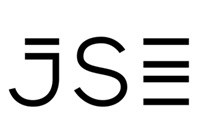Discussions are currently under way between market participants in Nigeria, Kenya and South Africa to launch the cross-listing of Exchange Traded Funds (ETFs).
There is a concerted effort from ETF issuers in various markets to cross-list new and existing ETF's on to other exchanges, and the exchanges themselves are working to ensure that the right frameworks are in place to enable this.
ETFs are a collection of equities, commodities or bonds bundled together in a fund to ensure that investor risks are evenly spread across this range of securities. ETFs are only written off specific index-related securities that are listed on a stock exchange, and this makes it possible to invest in a diverse range of securities through a single exchange traded product.
The concept of cross listing an ETF is the same as cross-listing a share, or listing it on more than one exchange. It provides domestic investors with access to opportunities from another market, in the convenient and cost effective form of an ETF.
Fast growing category
By cross listing ETFs on African exchanges, investors will be given access to liquid company shares tracked by indices such as the FTSE/JSE Top 40, the FTSE/NSE Kenya 15 Index, and the MSCI/Nigeria. "ETFs are one of the fastest growing asset-class categories in the world. By collaborating with Africa's largest stock exchanges, we hope to spearhead this trend in Africa," says director for Capital Markets at the JSE, Donna Oosthuyse.
The cross listing of ETFs will fulfil two main functions: Investors will have exposure to a diverse range of top performing Nigerian, Kenyan and South African companies in a convenient and cost-effective way; and the cross-listings of ETFs will also improve the liquidity of Africa's largest stock exchanges.
Oosthuyse explains that the advantages for companies included in the ETF indices, and for the exchanges from whence they come, are that ETFs need to be 'fully covered'. "This means that the asset manager that is managing the ETF portfolio has to buy and sell the underlying shares on the home exchange, depending on the activity of buying and selling of the ETF."
Extra visibility
"If an ETF from Kenya or Nigeria for instance is listed on the JSE, then the asset manager in Kenya or Nigeria has to buy and sell the constituent shares on the home market, as units in the ETF are bought and sold. This drives liquidity in the home market. In addition to this, it provides extra visibility on the shares on that exchange to new investors who in all likelihood don't yet trade on that market," Oosthuyse says.
Haruna Jalo-Waziri, executive director of Business Development at the Nigerian Stock Exchange, says this collaboration underscores our commitment to providing investors with a wide range of investment products to help them realise their financial goals. "ETFs are becoming attractive to many investors offering them portfolio diversification and reduce cost of investing. We are proud once again to be collaborating with reputable exchanges in Africa to bring this new and exciting investment opportunity to bolster trade across multiple markets."
As part of an on-going effort to deepen and promote liquidity, choice of products and investor interest across African markets, the JSE and the African Securities Exchanges Association (ASEA), supported by the World Bank Group, will be hosting the third Building African Financial Markets seminar from 16 to 18 September at the JSE in Sandton, Johannesburg.

















































